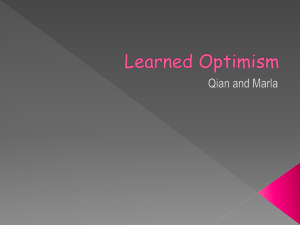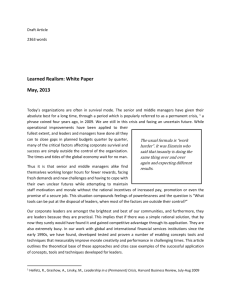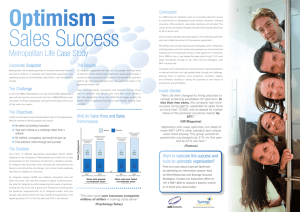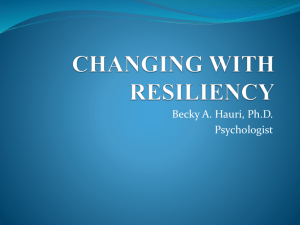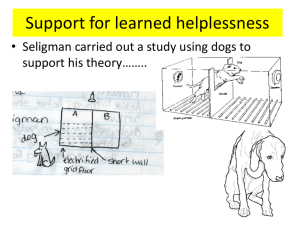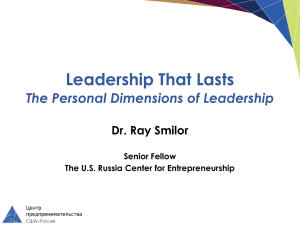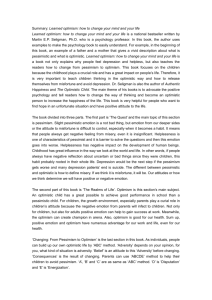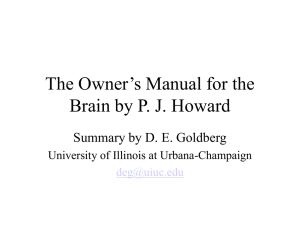article_DontWorryBeHappy.doc
advertisement
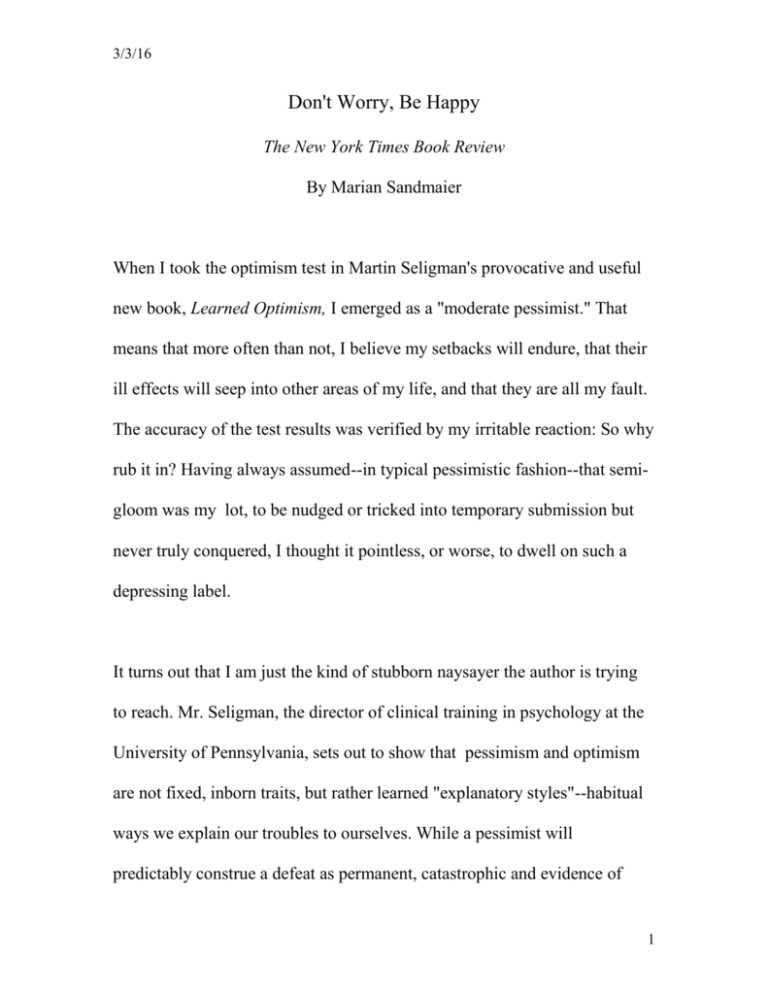
3/3/16 Don't Worry, Be Happy The New York Times Book Review By Marian Sandmaier When I took the optimism test in Martin Seligman's provocative and useful new book, Learned Optimism, I emerged as a "moderate pessimist." That means that more often than not, I believe my setbacks will endure, that their ill effects will seep into other areas of my life, and that they are all my fault. The accuracy of the test results was verified by my irritable reaction: So why rub it in? Having always assumed--in typical pessimistic fashion--that semigloom was my lot, to be nudged or tricked into temporary submission but never truly conquered, I thought it pointless, or worse, to dwell on such a depressing label. It turns out that I am just the kind of stubborn naysayer the author is trying to reach. Mr. Seligman, the director of clinical training in psychology at the University of Pennsylvania, sets out to show that pessimism and optimism are not fixed, inborn traits, but rather learned "explanatory styles"--habitual ways we explain our troubles to ourselves. While a pessimist will predictably construe a defeat as permanent, catastrophic and evidence of 1 3/3/16 personal ineptitude, an optimist will interpret the identical misfortune as temporary, controllable and rooted in circumstances or plain bad luck. Mr. Seligman's optimistic message is that since learned behavior can be unlearned, recovery from pessimism is entirely possible. Not to mention highly advisable. Optimists, as Mr. Seligman documents, are life's big winners. They do better in school, on the playing field and on the job because they cheerfully persist in the face of setbacks, while equally talented pessimists crumple and quit. (Mr. Seligman's own distinguished career clearly owes something to optimism: when an important paper he present at Oxford University was scathingly attacked by a respected psychologist in the audience, he responded by inviting his critic to collaborate with him on his next research project. The partnership resulted in a major advance in cognitive theory--the discovery of a critical link between a person's explanatory style and learned helplessness.) If optimists sail through life, pessimists trudge. The author persuasively shows that negative thinkers have weaker immune systems, come down with more infectious diseases and face more major health problems after age 45. They also are far more likely to suffer depression. Then Mr. Seligman takes 2 3/3/16 the argument one provocative step farther--depression is in fact caused by pessimism--and therefore can be cured by systematically reprogramming one's thoughts. This audacious claim is worth listening to. There is good evidence that certain types of depression can be diagnosed and successfully treated from a purely cognitive perspective. But Mr. Seligman undermines his case by pushing it too far: he flatly refuses to acknowledge that nonbiological depression may be caused or cured by anything beyond one's habits of thinking. Offering only anecdotal evidence, he writs off the psychoanalytic idea that depression is repressed anger, labeling this concept an "insidious bit of nonsense." And a few pages later, he dismisses as merely "fashionable" a substantial body of research linking high rates of depression among women to conflicts about their sex roles. One explanation of depression doesn't invalidate another, nor does one type of treatment render all others useless. Indeed, a recent report issued by the American Psychological Association notes that depression is currently considered to be "a complex interaction of many factors" and advises "practical eclecticism" in the treatment of depressed patient. Although 3 3/3/16 revamping one's belief system is arguably a critical piece of any plan to beat depression, it is still only a piece. But for those who are not severely depressed--for the merely discouraged, the controlled self-doubters--a schooling in optimism may be sufficient to root out chronic negativity. For these people, the book offers a rigorous and detailed program for literally changing one's mind--a method that relies not on the power of positive thinking but on systematically fighting self-inflicted slander. Since Mr. Seligman is too much the scientist to rely on personal testimonials to make his point, I will offer one of my own: a few weeks ago, in the grip of "can't do" gloom over a book I am writing, I grumpily tried his method. While the process was neither painless nor brief, to my considerable surprised it vaulted me out of my funk, and I remain funk-free at this writing. So, fellow moderate pessimists, go buy this book--before you think of a reason not to. (Can you put a little symbol at the end of each article, like the Networker does?) 4
